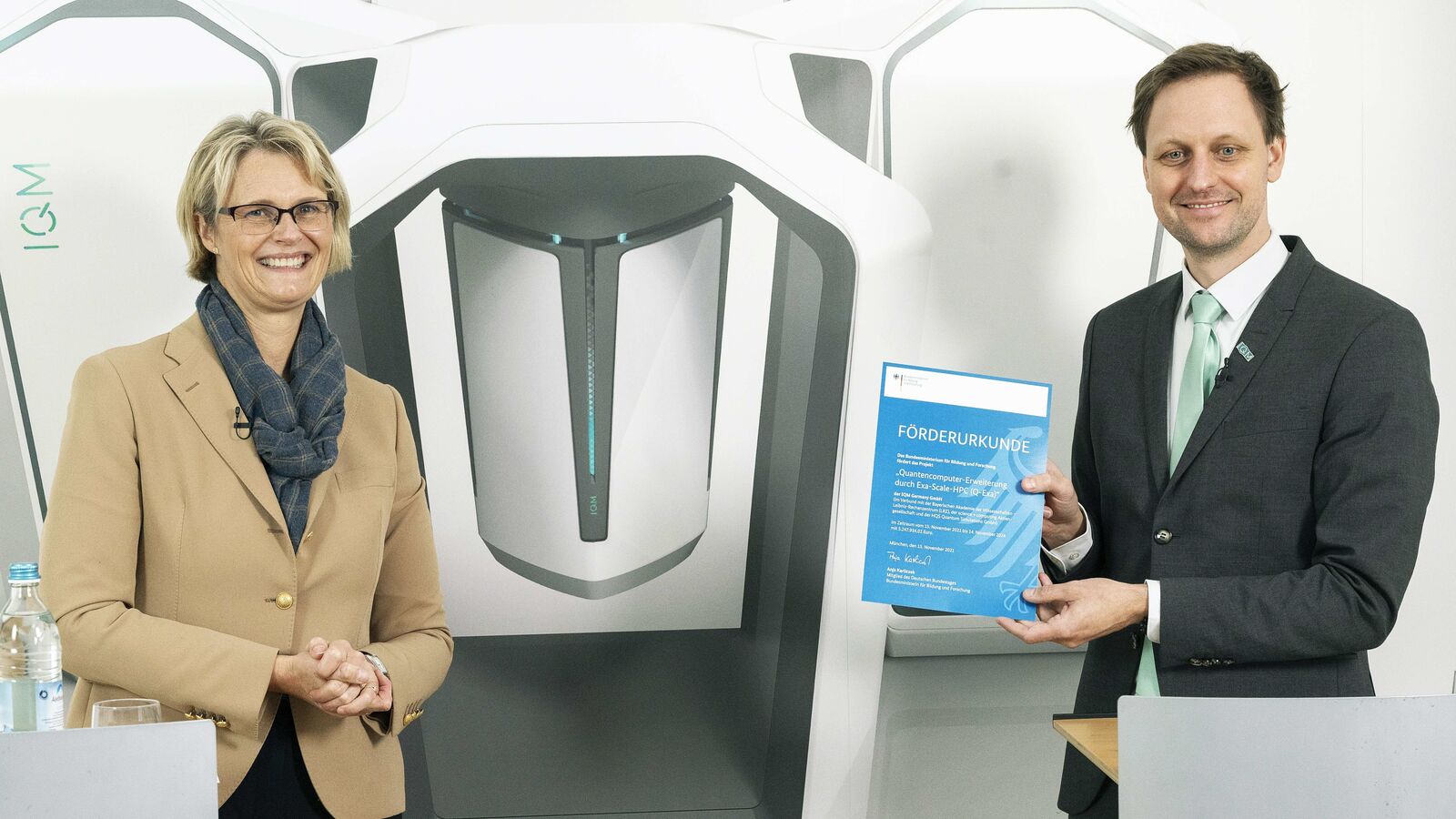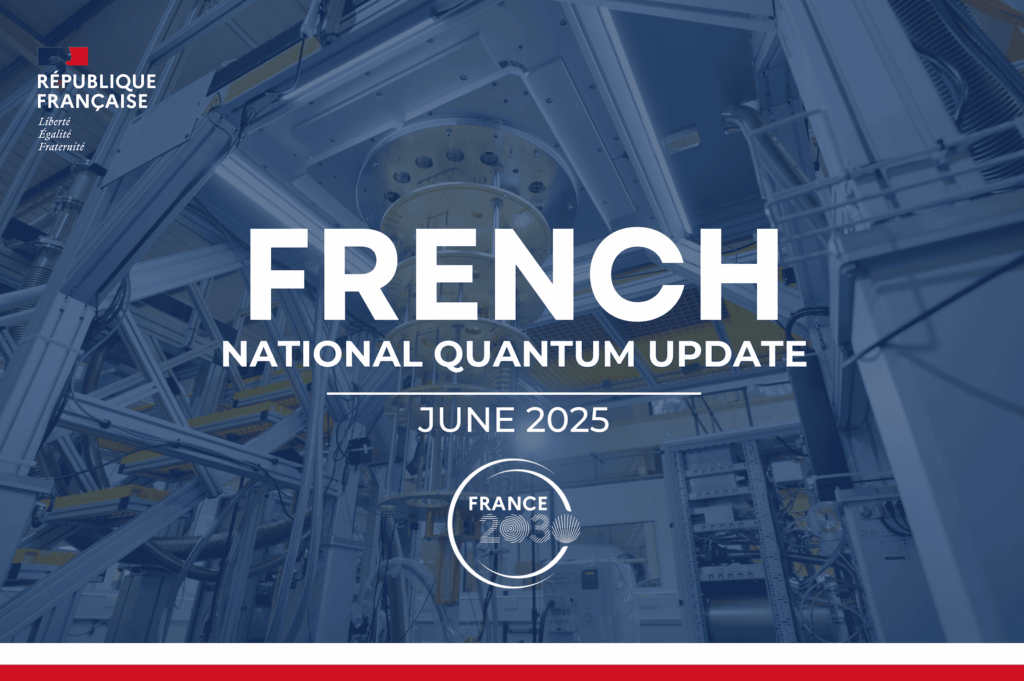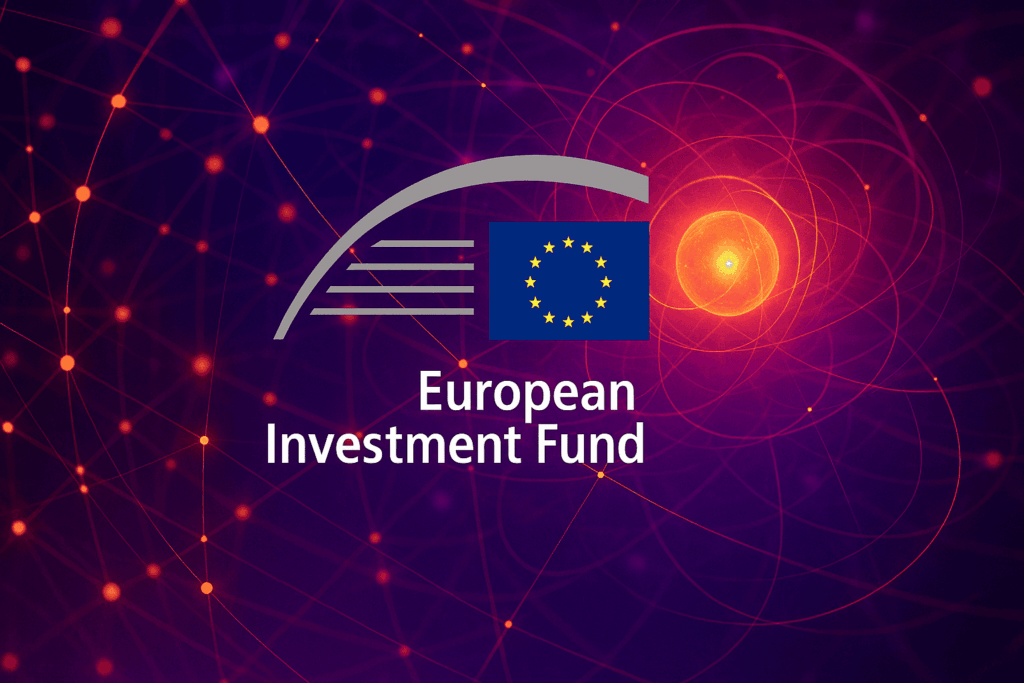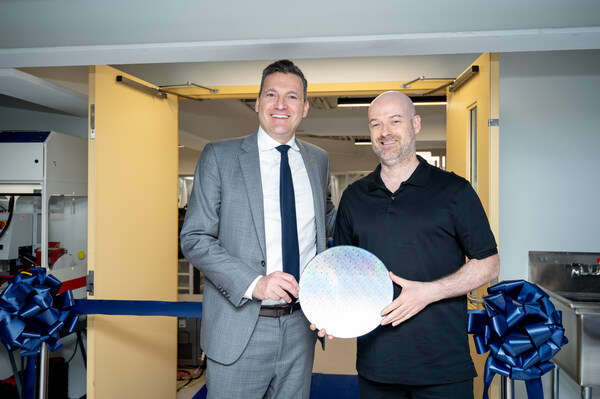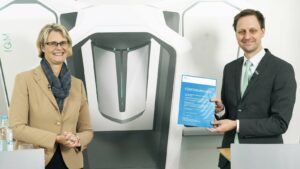
Image Credit: BMBF/Hans-Joachim Rickel
PRESS RELEASE — IQM Quantum Computers has been selected to provide a quantum computing system that will be integrated into an HPC supercomputer to create an accelerator for future scientific research. The delivery is part of a €45.3 million consortium project. The project is funded by the German Federal Ministry of Education and Research (BMBF) with €40.1 million.
The highly interdisciplinary consortium with experts from quantum physics and computer science, from research centers and industry, will integrate a quantum computing system provided by IQM into an HPC environment via a research purchase. This will be the first time that a gate-based quantum system will be coupled with an HPC system, making quantum acceleration of HPC applications a reality.
Quantum computers have significant potential for solving a certain class of scientific and industrial problems that cannot be addressed by classical supercomputers. To meet this challenge, HPC centers around the world are looking for ways to integrate quantum accelerators into their computing infrastructure. The ability to provide on-site solutions for quantum computing in conjunction with supercomputers is essential for the development of cutting-edge high-tech solutions from Europe. The main goal of the Q-Exa project is to establish such solutions and thus strengthen the application-related use of quantum technologies from Germany.
IQM will work with Leibniz Supercomputing Centre, LRZ – one of Germany’s three national supercomputing centers, Europe´s leading HPC and quantum system provider (Atos) and one of Germany’s leading innovators of quantum computing applications (HQS) on this project.

Q-Exa´s collaborative approach creates strong synergies with other research projects in the German and European ecosystem. The previously announced BMBF project DAQC benefits from novel simulators and fits seamlessly into the concept of the Q-Exa Co-Design Lab. The new Co-Design lab will accelerate the path to self-sustaining quantum computing, the so-called quantum advantage, through industry partnerships. This approach is in line with other German industry efforts, such as the recently formed QUTAC consortium. On the application side, research consortia such as the BMBF projects QLindA, MANIQU and other initiatives support development as industrial use cases can be tested on the Q-Exa demonstrators. Finally, the Q-Exa project supports the European strategy based on integrating quantum computing accelerators into European HPC centers. With Q-Exa, Germany can make an active contribution to these European efforts.
Federal Research Minister Anja Karliczek says: “The international race in the field of quantum technologies is in full swing. Germany and the European Union must do their utmost to keep pace in order to guarantee our technological sovereignty. We want to be able to autonomously use the technology and develop it further. The Q-Exa project opens a new promising chapter on our path to a quantum computer ‘made in Germany’. Integrating a quantum computer with the infrastructure of the Leibniz Supercomputing Centre harbours enormous potential for science and industry. The project will contribute to bringing quantum computers close to practice and to provide specific application scenarios for users in science and industry. I am delighted that by launching the project we have reached the first milestone on the way towards a competitive quantum computer ‘made in Germany’.”
 Dr. Jan Goetz, CEO of IQM Quantum Computers remarks: “We are pleased to deliver a quantum computing system to LRZ and to work with the consortium partners to integrate this system into a production-grade HPC environment. I am grateful to the Federal Ministry of Education and Research in Germany, which has given us the necessary trust and support for this ambitious project. Together we will work hard to make European technology competitive and develop the most promising hardware solutions for quantum computing here in Germany”.
Dr. Jan Goetz, CEO of IQM Quantum Computers remarks: “We are pleased to deliver a quantum computing system to LRZ and to work with the consortium partners to integrate this system into a production-grade HPC environment. I am grateful to the Federal Ministry of Education and Research in Germany, which has given us the necessary trust and support for this ambitious project. Together we will work hard to make European technology competitive and develop the most promising hardware solutions for quantum computing here in Germany”.
Prof. Dr. Dieter Kranzlmüller, Chairman of the Board of Directors, LRZ, points out: “The Q-Exa project is key for our activities within the LRZ Quantum Integration Centre (QIC) and the Munich Quantum Valley (MQV). Working with this extremely competitive consortium, we will be able to set European standards that are competitive on a global scale. Ultimately, this will be for the benefit of society as the integration of quantum computing into supercomputers, in particular on the exascale level, will speed up and open vast new research possibilities. It will bring quantum computing to users – both in academia and in industry. And now is exactly the right time to realize this in a data center environment”.
“Technological sovereignty in strategic areas like quantum computing is critical for Europe. With our Quantum Learning Machine (QLM) and strong startup partners like IQM, Atos is proud to contribute to this joint effort. It is time to build the first German quantum computer, connected to an HPC datacenter through our QLM”, says Udo Littke, Head of Atos Central Europe.
„Quantum computers will accelerate scientific progress and the development of new technologies in many areas. Chemistry, physics and biology can potentially profit from the ability to perform improved quantum mechanical simulations. Therefore, it is the next logical step to integrate quantum computers into high performance computer centers like the LRZ. We are looking very much forward to connect the end users of the LRZ with the necessary software tools to make full use of the coming computational capabilities”, says Dr. Michael Marthaler, CEO HQS Quantum Simulations GmbH.
If you found this article to be informative, you can explore more current quantum news here, exclusives, interviews, and podcasts.

